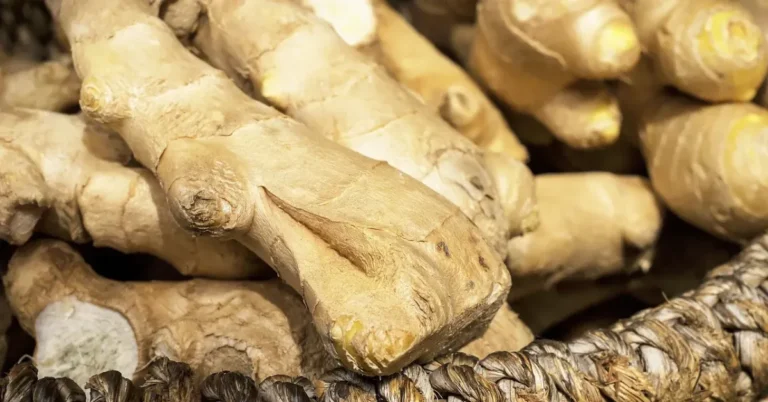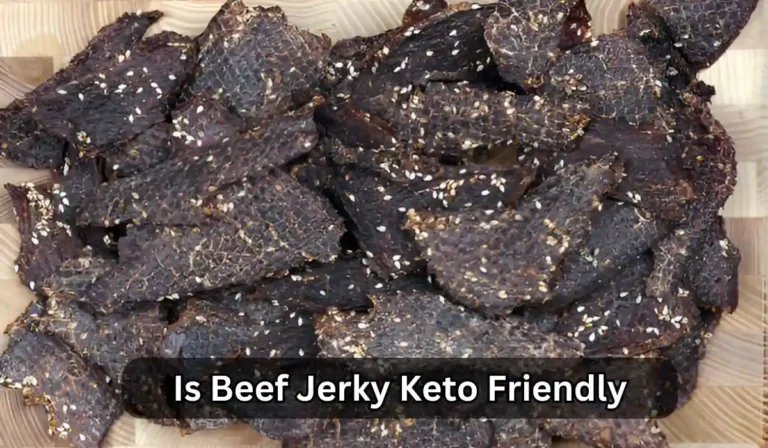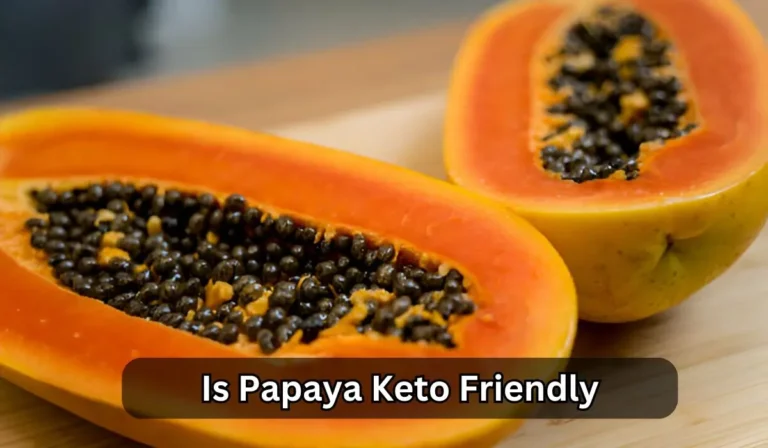Are Walnuts Keto-Friendly? The Ultimate Guide
Are you following a keto diet and wondering if walnuts are keto-friendly? The keto diet is a low-carb, high-fat diet that puts your body into a metabolic state called ketosis. The goal of the keto diet is to get your body to burn fat for energy instead of carbohydrates. To achieve this, you need to consume foods that are high in healthy fats and low in carbohydrates.

Understanding what foods are keto-friendly can be tricky, especially when it comes to nuts. Some nuts are high in carbohydrates, which can make it challenging to stay in ketosis. However, walnuts are generally considered keto-friendly due to their low carbohydrate content, high-fat content, and numerous health benefits.
Key Takeaways
- Walnuts are generally considered keto-friendly due to their low carbohydrate content and high-fat content.
- Incorporating walnuts into your keto diet can provide numerous health benefits, including improved heart health and brain function.
- While walnuts are generally safe for most people on a keto diet, it’s essential to monitor your intake and avoid overconsumption to stay in ketosis.
Understanding Keto-Friendly Foods

When following a keto diet, it’s important to understand which foods are considered keto-friendly. In general, keto-friendly foods are those that are low in carbohydrates and high in fat. This is because the goal of a keto diet is to put your body into a state of ketosis, where it burns fat for fuel instead of carbohydrates.
Here are some examples of keto-friendly foods:
- Meat: Beef, chicken, pork, lamb, and other meats are all great sources of protein and fat and are low in carbohydrates.
- Fish and seafood: Fish and seafood are also excellent sources of protein and healthy fats, and are typically very low in carbohydrates.
- Eggs: Eggs are a great source of protein and healthy fats, and are very low in carbohydrates.
- Nuts and seeds: Many nuts and seeds, such as almonds, macadamia nuts, and chia seeds, are high in healthy fats and low in carbohydrates.
- Vegetables: Some vegetables, such as leafy greens, broccoli, and cauliflower, are low in carbohydrates and can be eaten in moderation on a keto diet.
- Dairy: High-fat dairy products, such as cheese, butter, and heavy cream, are great sources of healthy fats and are low in carbohydrates.
On the other hand, certain foods should be avoided on a keto diet, as they are high in carbohydrates and can kick you out of ketosis. These include:
- Grains: All grains, including wheat, rice, and oats, are high in carbohydrates and should be avoided on a keto diet.
- Sugars: All forms of sugar, including table sugar, honey, and maple syrup, are high in carbohydrates and should be avoided on a keto diet.
- Starchy vegetables: Vegetables such as potatoes, sweet potatoes, and corn are high in carbohydrates and should be avoided on a keto diet.
- Processed foods: Most processed foods, including chips, crackers, and cookies, are high in carbohydrates and should be avoided on a keto diet.
By understanding which foods are keto-friendly and which should be avoided, you can make informed choices about what to eat on a keto diet.
Nutritional Profile of Walnuts

Macronutrient Composition
When it comes to the macronutrient profile, walnuts are a great choice for a keto diet. They are high in healthy fats, moderate in protein, and low in carbs, making them an ideal addition to your low-carb routine. According to Ketogenic.com, 1 oz of walnuts contains 1.98g of net carbs. With less than 2g of net carbs per serving, but 19g of fat and 4g of protein, walnuts are considered keto-friendly.
Micronutrient Highlights
Walnuts are a good source of micronutrients, including vitamins and minerals. They contain vitamin E, which is an antioxidant that helps protect your cells from damage caused by free radicals. Walnuts also contain magnesium, which is important for bone health, and phosphorus, which is important for energy production and cell function. In addition, they are a good source of copper, which is important for the production of red blood cells, and manganese, which is important for brain function.
In summary, walnuts are an excellent choice for a keto diet. They are high in healthy fats, low in carbs, and contain a variety of micronutrients that are important for overall health. Incorporating walnuts into your diet is a great way to add flavor and nutrition to your meals while staying on track with your keto goals.
Benefits of Walnuts on a Keto Diet

Walnuts are a great addition to a keto diet due to their numerous health benefits. Here are some of the benefits of including walnuts in your diet:
1. High in Healthy Fats
Walnuts are high in healthy fats, particularly polyunsaturated and monounsaturated fats, which are essential for a healthy body. These fats help to reduce inflammation, improve cholesterol levels, and promote heart health.
2. Low in Carbs
Walnuts are low in carbs, making them an ideal snack for those following a keto diet. A single ounce of walnuts contains only 3.9 grams of carbohydrates, making them a great addition to a low-carb, high-fat diet.
3. Rich in Nutrients
Walnuts are packed with nutrients, including vitamin E, magnesium, and antioxidants. These nutrients help to improve cognitive function, boost immunity, and promote overall health and well-being.
4. Helps with Weight Loss
Walnuts can help with weight loss due to their high fiber content. Fiber helps to keep you feeling full for longer, reducing your overall calorie intake and promoting weight loss.
5. Versatile and Delicious
Walnuts are a versatile and delicious addition to any keto diet. They can be eaten on their own as a snack, added to salads or baked goods, or used as a topping for oatmeal or yogurt.
Overall, walnuts are a keto-friendly food that provides numerous health benefits. Including walnuts in your diet is an easy way to improve your overall health and well-being while following a low-carb, high-fat diet.
How to Incorporate Walnuts into Your Keto Diet
If you’re looking to incorporate walnuts into your keto diet, there are a few things to keep in mind. Below are some tips on how to properly portion walnuts and some recipe ideas to get you started.
Portion Sizes
While walnuts are a great source of healthy fats and protein, it’s important to keep an eye on your portion sizes. A single serving of walnuts is typically around 1 ounce, which is approximately 14 halves. This serving size contains about 185 calories, 4 grams of protein, and only 4 grams of net carbs.
It’s important to note that while walnuts are a great addition to your keto diet, they should be consumed in moderation. Consuming too many walnuts can lead to consuming too many calories, which can lead to weight gain.
Recipe Ideas
Walnuts can be a great addition to many keto-friendly recipes. Below are some recipe ideas to get you started:
- Walnut-Crusted Salmon: Coat salmon fillets in a mixture of ground walnuts and spices, then bake for a delicious and healthy meal.
- Keto Granola: Mix chopped walnuts, coconut flakes, and your favorite keto-friendly sweetener for a delicious and crunchy granola.
- Walnut Pesto: Blend walnuts, basil, olive oil, and garlic for a delicious and keto-friendly pesto sauce. Serve over zucchini noodles or your favorite keto-friendly pasta alternative.
Incorporating walnuts into your keto diet can be a great way to add healthy fats and protein to your meals. Just remember to keep an eye on your portion sizes and enjoy them in moderation.
Potential Concerns with Walnuts and Keto
While walnuts are generally considered keto-friendly due to their low net carb count, there are a few potential concerns to keep in mind.
High-Calorie Count
One of the potential concerns with walnuts is their high-calorie count. While they are low in net carbs, they are high in fat and calories. One ounce of walnuts contains around 190 calories and 18 grams of fat. This means that if you consume too many walnuts, you may exceed your daily calorie limit, which could lead to weight gain.
Omega-6 Fatty Acids
Walnuts are high in omega-6 fatty acids, which are essential fatty acids that your body needs but should be consumed in moderation. Consuming too many omega-6 fatty acids can lead to inflammation and other health issues. While walnuts are a good source of omega-6 fatty acids, it’s important to balance your intake of omega-6s with omega-3 fatty acids, which are found in foods like salmon, flaxseeds, and chia seeds.
Allergies
If you have a nut allergy, walnuts are not keto-friendly for you. Even if you don’t have a nut allergy, it’s important to be aware of the potential for cross-contamination with other nuts. If you have a severe nut allergy, it’s best to avoid all nuts altogether.
Overall, while walnuts are keto-friendly, it’s important to consume them in moderation and be aware of their potential drawbacks. By balancing your intake of walnuts with other healthy fats and being mindful of your calorie intake, you can enjoy the many health benefits of walnuts while staying in ketosis.
FAQs About Are Walnuts Keto-Friendly?
How many walnuts can I eat on a keto diet?
While walnuts are an excellent source of healthy fats, they still contain a moderate amount of carbohydrates. It is recommended to consume walnuts in moderation on a keto diet. According to Chef’s Resource, “Walnuts should be consumed in moderation, even on a keto diet, as they contain a considerable amount of calories.”
What nuts are best to include in a keto diet?
Nuts that are high in fat and low in carbohydrates are the best options to include in a keto diet. According to Diet Doctor, pecans, Brazil nuts, and macadamia nuts are the best nuts to include in a keto diet.
Can eating walnuts affect ketosis?
Eating walnuts in moderation is unlikely to affect ketosis. However, consuming too many walnuts can cause you to exceed your daily carbohydrate limit and may affect your ability to remain in ketosis.
What is the carbohydrate content in walnuts?
According to The Keto Eater, one ounce (28 grams) of walnuts contains 4 grams of carbohydrates, 2 grams of fiber, and 2 grams of net carbs.
Which nuts have the lowest carbs for a keto diet?
Pecans, Brazil nuts, and macadamia nuts have the lowest amount of carbohydrates per serving and can be enjoyed freely on a keto diet. According to Diet Doctor, these nuts contain less than 2 grams of net carbs per serving.
Are there any nuts to avoid while following a keto diet?
Nuts that are high in carbohydrates should be avoided while following a keto diet. According to Cast Iron Keto, cashews and pistachios contain a higher amount of carbohydrates compared to other nuts and should be consumed in moderation or avoided altogether while following a keto diet.






